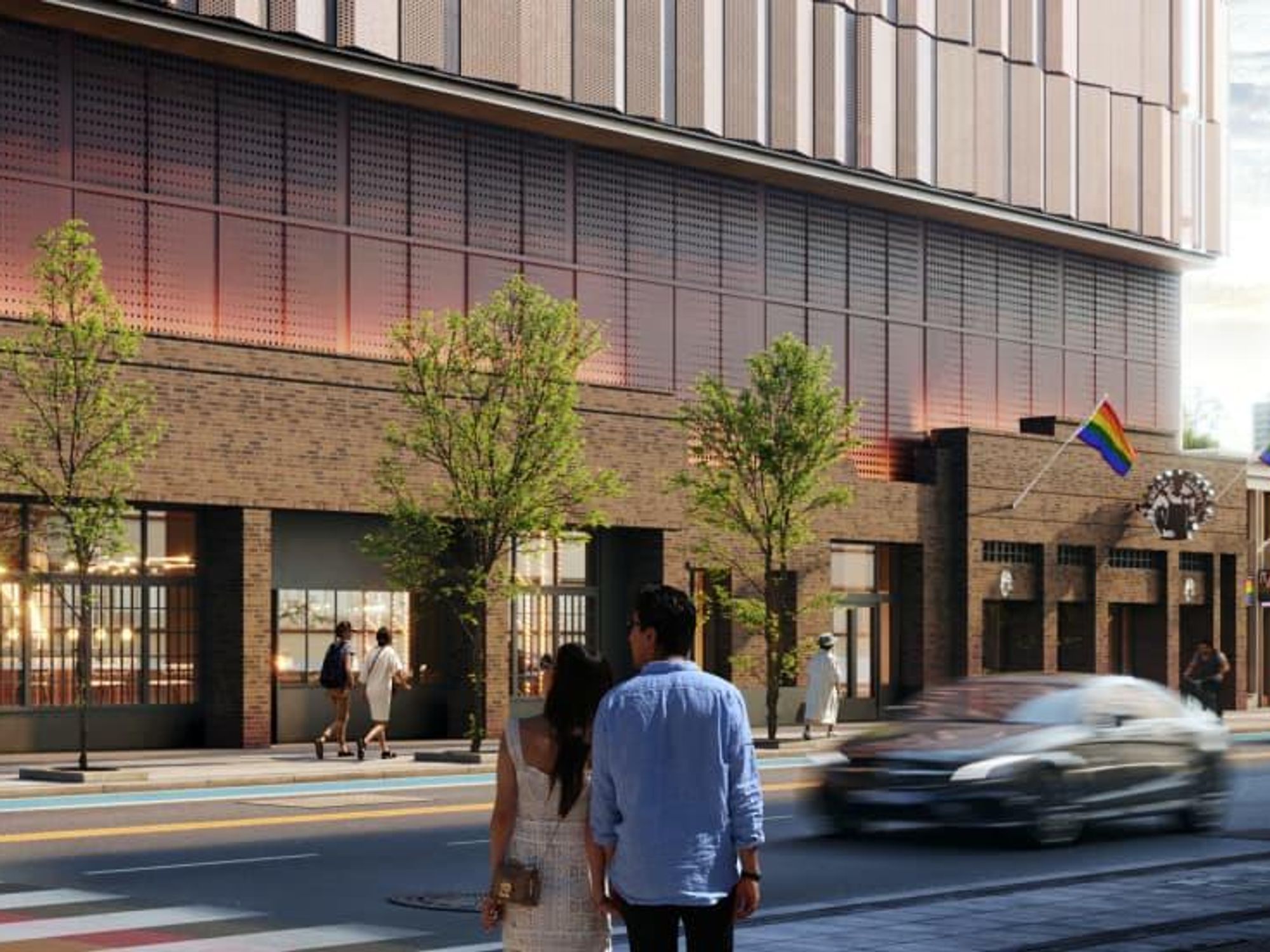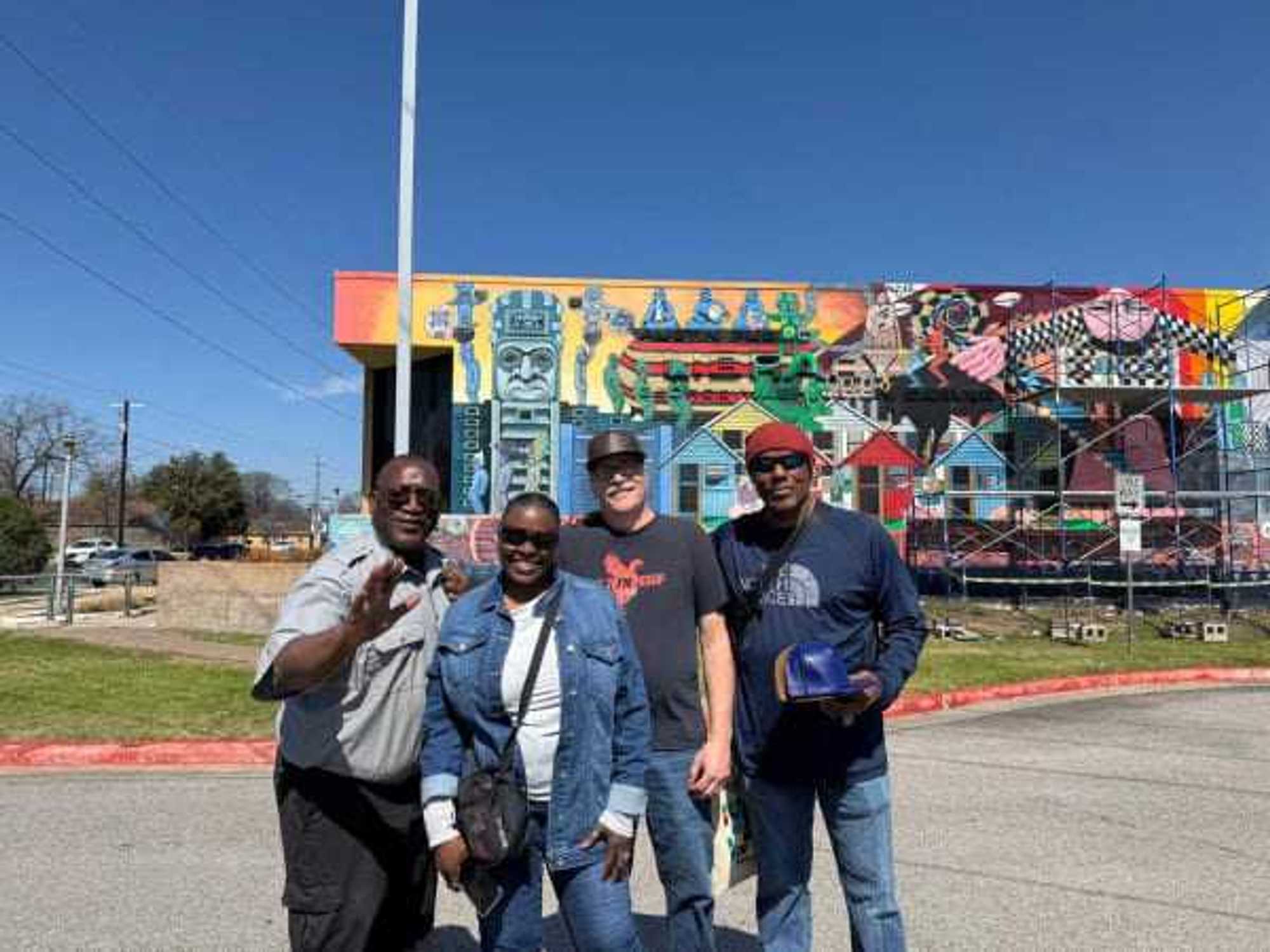Controversial construction
Proposed downtown development raises concerns about Austin's LGBTQ hub

An apartment high-rise proposed for downtown Austin’s Warehouse District has raised concerns about the future for the heart of the city’s LGBTQ community. But the project’s developer says it plans to maintain the spirit of the city’s LGBTQ hub.
The Hanover Co. wants to build a roughly 43-story tower with 400 apartments on West Fourth Street. When plans for the project recently surfaced on social media, some members of the LGBTQ community worried it would mean the disappearance of several gay bars and a huge loss for their community.
The structures that are set to be demolished are at 201 to 213 W. Fourth St., and at 310 and 318 Colorado St.
Austin resident Kolby Duhon told KXAN his initial reaction to learning about the project was “outrage.”
“When we won the right to marry, I can remember, I went right down to Fourth Street and celebrated with our community,” Duhon said. “Ultimately, we want to see the Fourth Street District remain a queer district right where it is, with all of the amenities that are in play, and the ability to keep it all kind of tight-knit like a family.”
Executives at Hanover want to assure people like Duhon that the company intends to keep the district’s LGBTQ soul as alive as possible.
David Ott, development partner at Hanover, says a new location for Oilcan Harry’s, the oldest gay bar in Austin, will be incorporated into the apartment project. During construction, the bar would occupy a temporary location.
The Fourth Street building that houses Oilcan Harry’s would be demolished to make way for the high-rise. Hanover is negotiating with the bar’s landlord, Michael Girard, to make sure Oilcan Harry’s has a new home in about 10,000 square feet on the ground floor of the apartment tower. The deal would include below-market rental rates under a 25-year lease.
In a statement, the owners of Oilcan Harry’s say the type of compromise being worked out with Hanover “is the only way to guarantee 4th street is maintained as one of the city’s vital community centers.”
“This block is a part of our identity. We know Austin is inevitably changing, but we are determined to find a way to ensure our community on 4th street is not pushed out,” the statement says.
Rain, a neighboring LGBTQ fixture in the Warehouse District, would not be affected by the project.
A nearby Colorado Street space that houses two other gay bars, Coconut Grove and Grotto, would be razed. When Coconut Grove and Grotto occupied that space under month-to-month leases, they were aware that the apartment high-rise was on the drawing board and that they might need to relocate, Girard told KXAN.
A Fourth Street space that was home to another gay bar, the now-closed Sellers Underground, also would be demolished.
Hanover intends to dismantle several Fourth Street masonry façades, store them offsite during the construction, and then incorporate them into the new building.
While Hanover has no control over the rainbow crosswalks and light-pole rainbow flags in the Warehouse District, Ott says that “we’re happy for them to be there and have no intention of removing them.” It’s anticipated that Oilcan Harry’s will fly a rainbow flag outdoors at its new location, according to Ott.
Hanover envisions construction starting in the spring of 2023 and wrapping up in late 2025.
In early May, the Austin Historic Landmark Commission will consider Hanover’s permit application related to removal of the historic façades. The commission’s architectural review committee held a hearing April 11 about the Hanover project.
Tina Cannon, president and CEO of the Austin LGBT Chamber of Commerce, is pleased by what she’s heard from Hanover so far. She notes that the project will improve housing density in downtown Austin and preserve several historic façades while also being considerate of the LGBTQ community.
“This is the model that you want to see developers do in our city. … This is a really good win-win-win,” she says.
